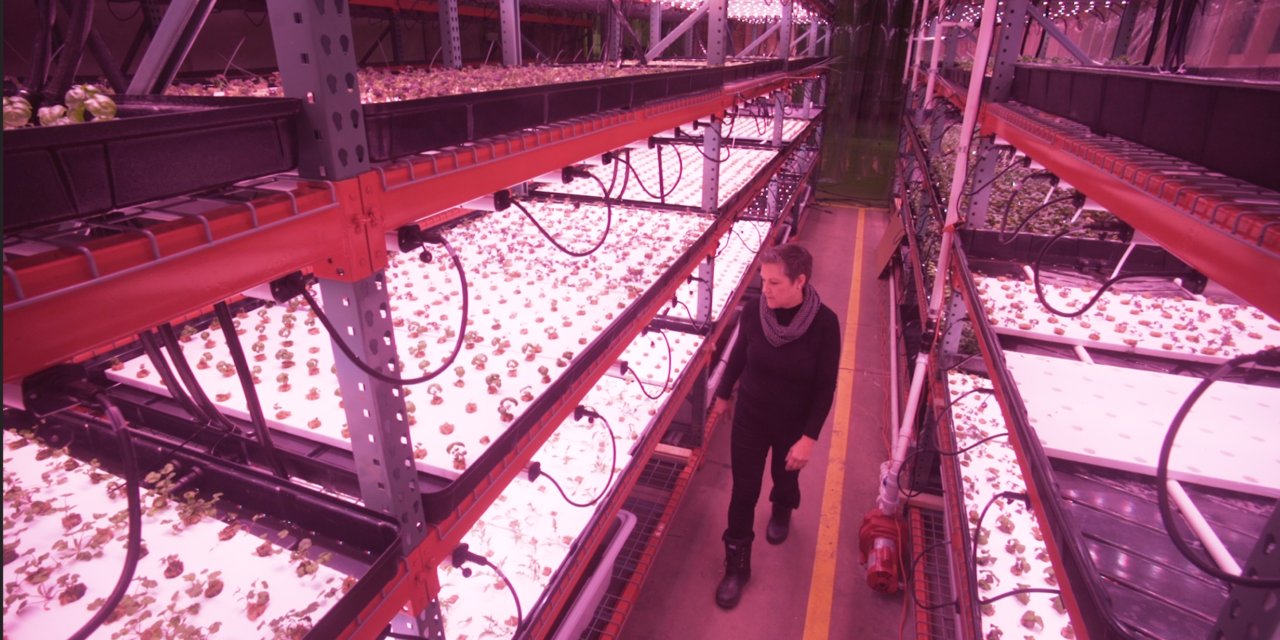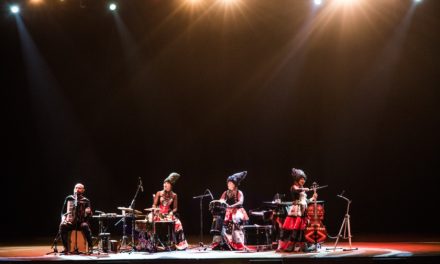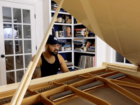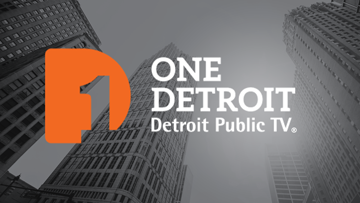June 5, 2019 | Bill Kubota | One Detroit
Hydroponic farms grow plants indoors without soil.
When those operations grow the plants on shelves under LED lights to take the sun’s place – that’s vertical farming.
In Detroit’s eastside Islandview neighborhood, a hydroponic vertical farm called PlanTed now operates out of an nondescript, once vacant 20,000 square foot industrial warehouse.

PlanTed’s manager and partner Kimberly Buffington explains the operation
“I relate it very much to the same time when Henry Ford was bringing the first Fords off the assembly line,” Buffington said, “we’re sort of at that point.”
The specialty crops include herbs, baby greens, and microgreens–a lot of them in demand by some of the high-end restaurants.
PlanTed also sells them at Eastern Market.
The viability of hydroponic farming has improved in recent years with more demand for local produce and better LED lighting technology created for indoor marijuana growers.
The farm’s temperature-controlled tents glow pink from specially made grow lights.
“The people that developed these lights have figured out that plants grow more effectively under specific wavelengths of light,” said farm manager Hunter Moore, “It’s actually a combination of red and blue wavelengths that they grow under, so that actually gets us a pretty consistent production and growth time.”

Farmhand Allie Mason holds opal and green basil
But growing hydroponically could make sense in places like Detroit.
“Hydroponic agriculture is really the next level technique where you’re growing in an area where there’s no soil available or where the soil’s highly contaminated,” farmhand Allie Mason said. “It’s an excellent solution when you’re living in a highly urban setting to be able to grow hydroponically and not only are we growing hydroponically but vertically so we’re maximizing the use of space.”

Meg Burritt delivers microgreens to Maru restaurant downtown
And the yield is available fresh, local, year-round.









